- Learning time
- 10 minutes
- First play time
- 30 minutes
Ankh´or
Designed by: Frank Crittin,Grégoire Largey,Sébastien Pauchon
Ankh’or is a relatively quick-playing game of paying chips to collect tiles and building a tableau of tiles in front of you: as soon as one player picks up their thirteenth tile, the game-end is triggered. After everyone has had an equal number of turns, points will be scored for sets of colours, and sets of symbols. The catch is that for sets to score, symbols and colours must be adjacent to each other…
Players begin the game with no tiles and no chips. On the table is the market, which offers (at the outset!) six tiles each with a specific price: two or three resources of particular types. On your turn, you can do one of the following actions: pick up chips, or return chips to the bank to pay for a tile. If you take chips, note that your hand limit is five resource chips and two of the orange Ankh chips (more on those in a moment). If you take a tile, it must be placed either orthogonally adjacent to any previously-placed tiles, or on top of four tiles in a square. Do the latter and the tile is actually cheaper to buy by one resource of your choice!
The Ankh chips provide free additional actions – you can return one to the bank to swap the positions of tiles in your tableau, or – more likely – refill the market with tiles. In a two-player game the left-most tile is discarded, in all games any remaining tiles move left and then all empty spaces are filled. This is the only way new tiles come out, so the timing of when it happens can be key, albeit you can’t predict what tiles will appear.
Mixed into these basic principles are some tiles that don’t count towards symbol scoring, but can still score for their colour: scribes give you an instant extra turn, warehouses allow you to store resources (and therefore increase your hand size) and other bonus tiles simply award points. There are also desert tiles – somewhat paltry offerings that have a colour, but no other reward to them. During play if you establish a set of five or more, your score three bonus points!
When the game ends, most points wins: score your adjacent matching colours and symbols (two or more!) any bonus points, and one point for every three chips in your possession.
The guru's verdict
-
Take That!
Take That!
Nobody can interfere with the tiles you've claimed, but removing tiles other players want is really a key part of play: you can win being entirely focused on your own business, but a victory is more likely when you play hardball.
-
Fidget Factor!
Fidget Factor!
Low-ish. The choices are fairly minimal, but they're moderately weighty too: you're only picking up thirteen or so tiles the entire game, so what you take can be critical.
-
Brain Burn!
Brain Burn!
Moderate. It's about balancing your own potential rewards whilst, if possible, stymying everyone else's.
-
Again Again!
Again Again!
Ankh'or is more an abstract puzzle than a story, and in that sense it doesn't vary. But each play remains a challenge, and there's a kind of Darwinian survival-of-the-shrewdest - or most devilish - going on.

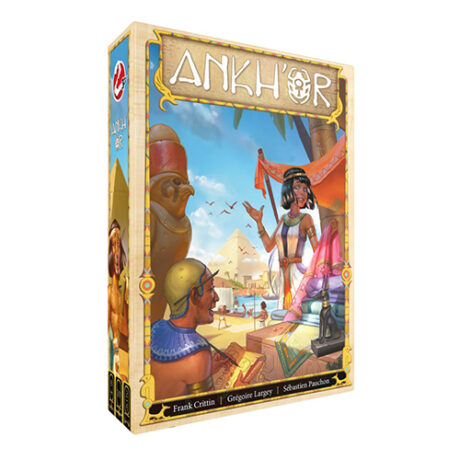
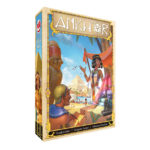


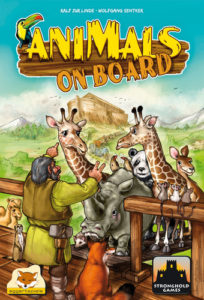
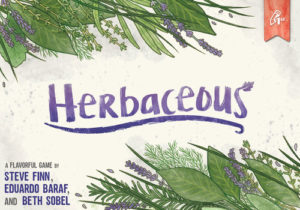
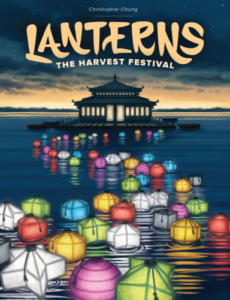
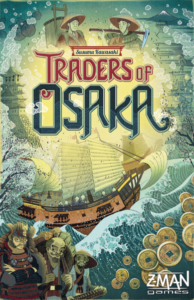
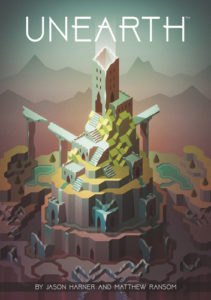
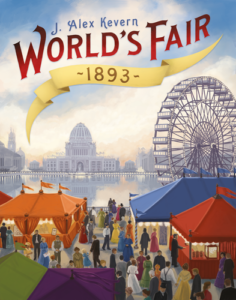
Sam says
A good 2 or 3 player game (too chaotic for 4) that reminded me of modern classic Jaipur. There are so many thousands of new titles being published every year now that to stand out a game needs to really pop, and Ankh'or is too small, abstracted and almost unassuming to achieve that status. But it's no different from a billion other good games in that regard - and Ankh'or is a good game. It's well-presented, cleverly constructed, and defies its little box/short playtime with big decisions - and a lot of dastardly indirect interference. I've enjoyed my plays of this one.